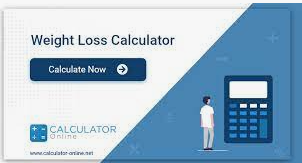Calorie deficit its Requirements and its Importance for Healthy life
What Is a Calorie?
Calories deficit are a unit of energy. Calorie-rich foods provide energy in the form of heat so that our body can function even at rest. The number of calories you burn each day is called Total Daily Expenditure, or TDEE. According to TDEE, it includes calories burned during exercise and non-exercise, and calories burned during the dry season are called the heat of food or TEF. It also contains burnable calories that maintain the body’s vital functions such as breathing and blood circulation.

You can compare your total body mass index (CMA) to find out how many calories your body needs to perform basic functions. Once you know your RMR, you can use the calculator to compare your total daily expenses. You can also go to the lab or gym to find these stats.
Also Read:
- What is Homeostasis? definition, Types, and Role of homeostasis
- Heart Attack, Symptoms, Causes, Risks and Treatment
- Nephrology and Nephrology Education and its related Diseases
What Is a Calorie Deficit, and How Much of One Is Healthy?
If you’ve ever tried to lose weight, you’ve probably heard that calorie deficiency is essential. You may be wondering what’s in it and why you need to lose weight.
This article describes everything you need to know about calorie deficiency: how it affects weight loss and how to achieve it in a healthy and sustainable way.
What it is and why it’s important for weight loss
- Calories are the energy component of food and drink, and if you eat fewer calories than you burn, you run out of calories.
- There are three components (1 safe source) for burning or consuming daily calories (also called calorie intake).
- Resting Energy Expenditure (REE) refers to the calories your body uses at rest to maintain your bodily functions such as breathing and walking.
- The heat from food: This includes the calories your body expends to digest, absorb and metabolize food.
- Energy Consumption: This refers to calories burned during sports activities such as sports and non-sports-related activities such as jogging and housework.

- If you give your body fewer calories than it needs to support these three components of a calorie diet, your body will remember calories. Doing this regularly over a long period of time will result in a reduction (trusted source 1).
- On the other hand, if you give your body more calories than you need to support this activity, you will gain weight. This is called excess calories.
Is a calorie deficit enough to lose weight?
Maintaining a caloric deficit is an important part of weight loss, but it’s a big deal. It’s not just calories that affect your weight.
To lose 1-2 pounds (lb.) per week, a person needs to eat 500-1,000 calories per day more than the total calories their body needs.
If a person is sedentary, i.e. they move only when they need to move alone. Still, they do not exercise or engage in any other physical activity, they should exercise for 30 minutes a day if possible.
Calculating calorie needs
- For most people, losing 500 calories daily is enough to lose weight and doesn’t particularly affect hunger or energy levels.
- To bring in that amount of calories, you need to know how to make the calories you save. Generally speaking, calorie storage is the number of calories your body needs to absorb energy.
- You can use a calorie calculator like the National Institute of Health Body Index. This calculator calculates maintenance calories based on weight, gender, age, height, and exercise levels (3 levels dependent).
- The calorie calculator gives you a good idea of your maintenance calorie needs, so you can get the right number by tracking your calorie intake and weight for 10 days (4 days).
- Use a calorie counter to track calories and monitor your weight with the same daily routine you do throughout the day. For best results, use the same amount of time at the same time of day and wear the same clothes (or nothing).

- Your weight may change from day to day, but if your weight remains constant for 10 days, your average daily calorie intake is a good indicator of your calorie intake.
- Calculate your daily calorie intake from Nick by dividing the total number of calories burned in 10 days by 10. Now cut 500 calories out of this information and set a goal for your new weight loss each day.
- For example, if you reduce your calorie storage by 2,000 per day, your new set of calories will be 1,500 per day.
- As you lose weight, your calorie intake will decrease over time and your calorie reduction goal (certainty 1) will need to be stopped. Of course, women should eat less than 1,200 calories per day and men less than 1,500 calories per day for effective weight loss and nutritious foods (5 Trusted).
- A reliable source from the Centers for Disease Control and Prevention (CDC) claims that cutting calories means you eat better. It can replace some high-calorie foods with junk food, increase fluid intake, and eat more fiber to fill the stomach.

How to Create a Calorie Deficit
Although creating a calorie deficit and losing weight may seem easy, many people struggle all the time because it is not easy to see. The good news is that you don’t have to limit yourself to one meal or juice at a time. Creating a calorie deficit for weight loss should focus on your health and fitness, not weight loss.
Last words
Fatigue and weight due to constant fatigue, Instead, focus on adjusting portions, adding healthy foods, eating nutritious foods, and participating in physical activities that you enjoy.
You can get help from a registered dietitian. These professionals can create an effective meal plan that meets your needs. In the long run, a plan tailored to your individual needs is better than one that lasts too long..